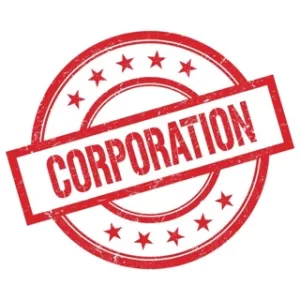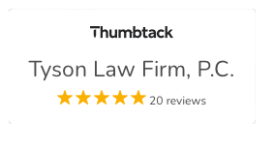Just what is a “proceeding supplemental”?
- A proceeding supplemental is a hearing that takes place after a creditor has obtained a judgment against a debtor. Many creditors are under the impression that once they obtain a judgment, their work is done. That is not at all the case. In most instances, the bulk of the work on a case involving the payment of a debt occurs after a judgment has been obtained. This is because going after judgment debtors can be very tough. Where do they live? Where do they work? How much do they make? Do they have any bank accounts? If so, with what bank? Do they own any real property? Much or all of this information may be required for a judgment creditor to collect the money they are owed.
- On their own, a judgment creditor would find it extremely difficult to gather all of this key information. That is one of the reasons that the assistance of a good attorney can be very helpful.
- A proceeding supplemental is a hearing that allows the judgment creditor to call a judgment debtor into court and obtain information about their employment, wages, assets, and other potential sources of recovery. If a judgment creditor already possesses this information, then a proceeding supplemental will provide an opportunity for them to request permission from a judge to recover from the judgment creditor by wage garnishment, bank levy, or other means.
- Proceedings supplemental in Indiana are governed primarily by Indiana Rule of Trial Procedure 69(E). That rule holds that in order for a judgment creditor to initiate a proceeding supplemental, they must first file a motion with the relevant court, showing:
- That the person or entity filing the motion actually owns the judgment against the debtor;
- That the plaintiff has no reason to believe that a levy against the debtor will satisfy the judgment
- That the debtor be ordered to appear in court to provide information on his property that can be executed upon; and
- If a third-party garnishee is named, that they have or will have eligible property of the debtor, and ordering the third-party garnishee to answer questions about that property or appear at the proceeding supplemental to do so.
How does a proceeding supplemental come about?
- Typically, a proceeding supplemental comes about when a judgment creditor motions the court to set a hearing. The judgment creditor will then send appropriate notice to the debtor that he or she must attend the hearing. If the judgment creditor happens to have information on third parties related to the case – such as the debtor’s bank, employer, etc. – then they may also send those parties interrogatories, asking for certain important information about the debtor’s accounts, wages, etc., or requesting that they appear in court on the day of the proceeding supplemental.
Are creditors required to attend proceedings supplemental? What about debtors?
- Any parties that are ordered by a court to appear, for any hearing, are obligated to be present.
What is the notice requirement?
- The notice requirement is an obligation placed on the initiator of a legal action, which obligates that party to ensure that the opposing party is properly notified of the action being raised against them. Such an action is known as “providing service” to the other party, in legal terms. Service procedures in Indiana are governed by rules 4 and 5 of the Indiana Rules of Trial Procedure. A judgment creditor must show the court that the debtor was properly and timely notified of the proceeding supplemental. Failure to properly serve the debtor could be grounds for vacating or continuing the hearing.
How does a proceeding supplemental differ from a regular trial or hearing?
- First, it must be noted that, while there are some procedural similarities among all proceedings supplemental, there can also be quite a bit of variation in the form, style, and process of such hearings from court to court. Much of this will depend on the discretion and preferences of the particular court you are in, or the judge you are in front of.
- In general, though, proceedings supplemental differ most significantly from a trial in that they are post-judgment in nature, meaning that the plaintiff has already proved and won their case. Therefore, the judgment creditor isn’t really “defending” themselves. While judgment creditors will often be placed under oath, and sworn testimony taken, most of the time the questions posed to the judgment creditor are for information-gathering purposes only, not for the purposes of building a case.
What happens at a proceeding supplemental?
- As previously mentioned, procedures for proceedings supplemental can vary widely from court to court, or county to county. That being said, there are some points of similarity that one can expect regardless of what court he is in. Both parties will be required to appear. At the hearing, most courts will either call the parties before the judge, or encourage the parties to speak outside of the courtroom, where information can be exchanged or a payment arrangement agreed to. If the parties go immediately before the judge, the attorney for the judgment creditor will likely ask the debtor questions “on the record” regarding his employment, wages, assets, etc. If the attorney prefers (and the court permits) an off-the-record conversation with the debtor, then the debtor will be taken to a section of the courtroom, or a separate room, and asked many of the same questions, and perhaps asked to complete a questionnaire with much of his personal information relating to finances and assets. Once that portion is finished, the attorney will typically ask if the debtor is able and willing to make a payment arrangement. Depending on the outcome of that conversation, the attorney may or may not then go before the judge to record the results of the conversation and put the matter on record.
What if the debtor does not show up to the scheduled hearing?
- If a court orders a debtor to be at a hearing, the debtor must attend. If a debtor fails to attend a hearing at which he is ordered to appear, severe penalties could follow, including a finding of contempt, sanctions, or even an arrest warrant being issued for the debtor.
- If a judgment debtor is for some reason unable to attend a court-ordered hearing, he should immediately notify the court of the situation. Likely the court will require that the debtor file a “motion for continuance” or equivalent filing, which is a formal request to the court to postpone the hearing.
What are “interrogatories”?
- Interrogatories, at their core, are just questions from the judgment creditor. In the proceeding supplemental framework, they tend to be very specific, and typically fall under two categories.
- The first category of interrogatories is made up of questions directed towards the debtor himself. These are the questions that an attorney would ask the debtor either in court and on the record, or informally as part of an effort to arrive at a payment agreement. Such questions in this category could include the following:
- What is your social security number?
- Where do you live? How long have you lived there?
- Where do you work? How long have you worked there? What is your supervisor’s name?
- How much do you bring home each week?
- What are your monthly expenses?
- The second category of interrogatories typically used by judgment creditors consists of questions directed towards what are known as “garnishee defendants.” Garnishee defendants are third-party individuals or institutions that potentially hold assets or wages which can be attached by a judgment creditor. Examples of garnishee defendants could be a debtor’s bank or credit union, or his employer. Interrogatories directed to garnishee defendants are designed to get key information on the debtor’s assets that may be in the possession of the third party. Questions might include the following:
- (For banks or other financial institutions) Do you hold any accounts for the judgment debtor? What amounts are in those accounts? (For employers) Is the judgment debtor employed with your company?What is his hourly wage?What is his gross weekly income? How often is he paid?
How do garnishments work?
- A garnishment is a court order which allows for property in the hands of a third party – such as a bank or an employer – to be seized to satisfy the debt owed by a judgment debtor to a judgment creditor. While garnishments could conceivably be used with any third party, the term usually refers to a seizure of a judgment debtor’s wages from his job.
- Garnishments cannot be implemented unless a) a creditor has actually obtained a judgment against the debtor, and b) the creditor has then obtained a garnishment order from the court.
- Once a garnishment order has been obtained, a third party will be ordered to hold and turn over to the judgment creditor any eligible assets of the judgment creditor.
How do bank levies work?
- Bank levies permit an account holder’s assets at a bank or other financial institution to be frozen while a judgment creditor seeks permission from a court to seize the funds.
Can a debtor’s property be taken, or wages garnished, at the hearing?
- Once a judgment creditor has received information about a debtor’s employment, and has verified with the employer that the debtor is still employed, the creditor will then request that the court issue an order permitting them to garnish the debtor’s wages. Once the court issues such an order, then a debtor’s wages may be garnished.
What happens after a proceeding supplemental?
- That depends. If a judgment creditor is successful in locating wages or assets of a debtor, and can obtain an order from the court, then the debtor may have his wages garnished or property seized.
- If the debtor has no assets or employment at the time of the proceeding supplemental, then the judgment creditor will likely record whatever information is offered, and request that another proceeding supplemental be scheduled in 60 or 90 days or so, to allow the creditor to “check in” and see if anything has changed in the debtor’s situation.
How long can this process go on?
- That depends. A judgment in Indiana could be valid for up to 20 years, so it is possible that the process could go on for much of that time. However, the length of the process will largely depend on such factors as how aggressive a creditor decides to be, how much information a creditor is able to obtain on a debtor – and how quickly they are able to obtain it, how cooperative a judgment debtor is in the process, and how much property a debtor has available at any one time to be applied to the matter. In theory, the process does not terminate until either the judgment has been paid in full, or the judgment expires.
What if I don’t have any assets or wages?
- If you are a debtor and have no assets or wages, a judgment creditor will not be able to collect against you. However, it is important to note that, because judgments in Indiana can remain valid for up to 20 years, judgment creditors can continue to pursue you throughout that time, through tools such as proceedings supplemental, to learn of any changes in your situation that may allow them to collect.
Can a debtor go to jail if he is unable to pay his judgment?
- Debtor’s prisons, a fixture of the past, do not exist in modern America. By and large, debtors cannot be taken to jail for their debts. However, there are some exceptions. If a debtor does not show up for a court date, refuses to make payments as ordered, or otherwise engages in behavior considered in contempt of court, he could theoretically be sent to jail. Outside of those exceptions, however, debtors cannot be taken to jail for failure to pay their debts.
NOTE
All legal references are made with respect to Indiana law. Please check the laws of your local jurisdiction if you live in another state.
The articles in this blog are for informational purposes only. No attorney-client relationship is established through the publication of these articles.







